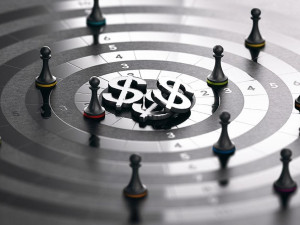
Black swan events are rare and unexpected events that can have a significant impact on society, the economy and even our daily lives. These events are characterised by their unpredictability and their ability to catch people off guard.
In this article, we will be looking at some historic ‘black swan events’, and discussing their onset and implications.

A black swan event — an introduction
In light of the collapse of Silicon Valley bank, which carries reminiscences of a black swan event, we can recall that the term “black swan” was first introduced by Nassim Nicholas Taleb in his book “The Black Swan: The Impact of the Highly Improbable”. In the book, Taleb defines a black swan event as an outlier that goes beyond what is normally expected of a situation and has massive consequences, with an emphasis on financial markets and society.
These events are so named because of their rarity — they are like a ‘black swan’ in nature; something that was thought to be impossible, but then eventually happens.
A well-known example of a true black swan event are the 9/11 terrorist attacks. No one could have predicted such a catastrophic event and its effects were felt by victims, their loved ones and society as a whole.
Black swan events can be caused by natural disasters, technological failures, geopolitical events or other unforeseen circumstances. They can also be exacerbated by human error or lack of preparedness.
Is the SVB collapse a black swan event?
The sudden and unexpected collapse of SVB certainly has some of the characteristics of a black swan event. It happened suddenly and nobody expected it, apart from selected VCs who encouraged their portfolio companies to withdraw funds from SVB and so, contributed to the bank run.
Many people see the beginning of the financial crisis as the collapse and last-minute rescue of Bear Stearns in March 2008 — but the financial crisis and the black swan that really triggered it was the collapse of Lehman Brothers in September 2008. After Lehman’s collapse, there was immediate contagion and fallout in all markets: equities, credit, and derivatives.
In the case of SVB, the markets have been largely calm so far, with the exception of selected regional bank stocks, which have fallen significantly, because of the same reasons responsible for SVB’s failure: fear of deposit flight and funding pressures. Broad equity market volatility has not exploded, with the VIX trading at levels around 25, which is not quite panic territory.
So is this an archetypal black swan event? Probably not.
Financial regulators and US President Biden also insist that they are on top of the situation.
In the past, many events that initially seemed likely to cause contagion did not end up having a major impact on the broader market and the global economy, such as the default of Chinese property developer Evergrande.
The impact of black swan events
We should not underestimate the impact of black swan events. They can cause huge changes in markets, economies and politics, and their effects can be felt for years. We’ll look at some of the most pronounced effects of these events on financial markets:
Huge volatility in financial markets
The influence of a black swan event on financial markets can be both immediate and long-term. These extreme and unexpected events are sometimes preceded by increased volatility in equities, commodities, bonds and currencies. In the aftermath, volatility suddenly explodes.
While it may take some time to determine the exact impact, it quickly becomes clear that the internal structures of the financial markets have been disrupted. As panic sets in, investors offload assets and close out positions, contributing to increased volatility and unsustainable price movements.
Reduced credit availability
Prior to the onset of a black swan event, and certainly after the event, economic uncertainty often leads to a reduction in the availability of credit. Banks and other financial institutions that provide loans and other forms of credit become more cautious immediately after the event as they try to assess the broader impact of it. This can lead lenders to tighten their risk controls, which can make it more difficult for businesses and households to access credit.
Mark Spitznagel, the hedge fund manager whose character was the subject of the movie “The big short”, was able to anticipate the black swan event of the 2008 financial crisis by rising protection costs in credit default swaps.
Increased demand for insurance
As the impact of a black swan event becomes more tangible, companies often increase their demand for insurance. While insurance provides some protection against the financial burden that such events can cause, it is important to remember that insurance itself is subject to unpredictable fluctuations in demand. This can lead to further increases in the cost of insurance premiums, which can have a knock-on effect on businesses and households.
Political and social uncertainty
As well as have financial implications, black swan events can also lead to increased levels of political and social uncertainty. The magnitude and complexity of the event often give way to debates and conversations about how society is organised and what the implications are for public policy and the social order. This can cause divisions and change within society and lead to immense changes in the political landscape, which can have long-term repercussions. An example is the occupy movement which started after the financial crisis and the introduction of the Dodd-Frank Act of increased banking supervision in the United States.

Examples of black swan events
With the recent outbreak of the covid pandemic and lockdowns, this black swan event is still fresh in our minds. Some historical black swan events that have occurred over the past few decades:
Collapse of Lehman Brothers and the financial crisis
The 2008 collapse of Lehman Brothers, one of the world’s largest investment banks, was a major event that triggered the 2008 financial crisis. Lehman Brothers, which had been exposed to bad investments in mortgage-backed securities, filed for bankruptcy on 15 September 2008. This event and the onset of the financial crisis eventually caused more than $10 trillion in losses to investors around the world.
The event, along with similar collapses of other big names in the industry, triggered a crisis of the financial system in the United States and abroad, pushing economies around the world into recession. Governments had to step in with bailouts and stimulus packages to shore up faltering markets.
Swiss Franc Euro floor removal
On 15 January 2015, the Swiss National Bank suddenly lowered the floor for the exchange rate of the Swiss Franc against the Euro, a move that had far-reaching and profound consequences for financial markets around the world. This move by the Swiss National Bank caused the Swiss franc to rise by as much as 30% in a matter of minutes, sending equity and currency markets around the world into a tailspin.
Fukushima Nuclear disaster
On 11 March 2011, an earthquake and tsunami struck the Tohoku region of Japan, leading to the meltdown of the Fukushima nuclear power plant. In addition to the many casualties amongst people and nature, the event led to a fall in global stock markets, forcing the Japanese government to pour trillions of yen into stimulus packages to ensure the country’s economic well-being.
Black Monday 1987 Stock Market Crash
The Black Monday Crash of 1987 saw the Dow Jones Industrial Average plummet by more than 22% on 19 October 1987, making it the largest single day stock market crash in history. The event, thought to have been triggered by a combination of automated trading systems gone wrong.
Your payments are safe with CurrencyTransfer
Our carefully selected global payment partners don’t have any exposure to the SVB crisis and this sudden event won’t affect your international payments in any way. We keep monitoring the situation closely and will provide you with updates if there are any significant developments.
Please don’t hesitate to contact our dedicated team if you have any questions or concerns.
G.C. Wagner
Gustav Christopher is a writer specialising in finance, tech, and sustainability. Over 15 years, he worked in banking, trading and as a FinTech entrepreneur. In addition, he enjoys playing chess, running, and tennis.



